|
If I were on Wheel of Fortune Sajak would stop me halfway through the part where contestants tell their best stories I’d get to where we ripped out the cameras and took the dvr so they couldn’t even look at the tape Sajak would grab at his tie like he’s overheating and I’d know he wasn’t feeling it then I’d start the one where I wake up in a cell drenched in sweat in need of a private hoop to spray my dopesick and he’d ask if I had one about being in a bridge club or some shit do I look like I play bridge, Pat? wait, I say wanna hear about the time I was molested? then they play that Bankrupt sound Rob Kaniuk has been described as a junkie, a dropout, and a common scoundrel. He is the CNF editor at Schuylkill Valley Journal and his work can be found in various online journals and in the skyline of Philadelphia, where he’s employed as a union carpenter. 8/8/2020 Editor's RemarksI have come to think of this year as the hurting year. Everything hurts. All over. The world. Compromised bodies. Troubled minds. Broken hearts. How do any of us dare do it all again, every day, with one foot just barely in front of the other? In such times you become certain you do not have what it takes. Who has been in human struggle and not, at some point, known also this to be true; that when you think you can't get through, somehow you just do. I don't know about miracles, but I do know about enough pain to make you not want to do it all again, every day, and I know that that feeling passes and I don't know how, and I know many (just in my own family) for whom it never passed, they are missed and I do not blame them for throwing in that proverbial towel. It is a hard life, wherever you go. It's not easy to stay. It's not easy to leave. There's no easy to this thing. These are dark days and we'd rather not remember. And yet here we are, you and I, in the midst of a pandemic, sharing our impossible stories with a crazy kind of hope that it matters to tell such things to each other. That a poem or a song or anything really, where your heart meets your life can make a difference, even when the gap between what the world needs and what we have to offer seems so huge. There is something in all of this that must be for something more than vanity, and more importantly; for someone. Maybe you're hurting right now in a way that no one else can see. Maybe something in these pages will speak to the places you hurt, the places you live. A good story or poem can take you there, can unearth reasons to do it all again. I know. For me, not so long ago, it was these words by Jorie Graham; "are you sure you want to kill yourself? Do you not, maybe, just want to sleep it off again this time?" That's what a poem can do when your heart meets your life, that's not vanity, that's how we heal and help each other up. A thing branches out where it is wounded; Eigen says. We don't know how, only that we are sometimes there to see it, in someone else, in ourselves. Like Frederick Buechner, "I'm talking now about what it means to trade with your pain". Here, trade with us. Let someone's words draw out a map of why and wonder. Let us break stories. The psychoanalyst, Michael Eigen, writes of a psychotic patient who took to sleeping in sewers at night; he had a home but he needed to get down that low; he had to show people the very place that he lived mentally. Eigen sometimes worried; was he being unethical, should he have the man hospitalized? Who knows what it takes for another person to heal. For this man, sleeping in sewers was the only way. He survived and managed to live the rest of his life medication free. Sometimes the world opened up and colors briefly sang audibly to him in the park, but they no longer swallowed him whole. He lived a good life. From sewers to sanity, we are sometimes there to see it. If this place be but a bit of that, then we are trading with our pain for we know not what. Something. Glorious. Maybe. It is language, Celan says; the one thing that remains after all the losses. The wordlight that we each live a life by. And yet, there remains, for many of us, a yearning to be understood in a wordless way. Does it ever happen? Is it always as extreme as sewers? Can it be just this coming together that we sometimes do, laying out our maps, comparing routes, offering tips, wishing each other well on the long road ahead. Offering what little we have - to the world. "Pain is negation of everything that seems precious," writes Frederick Buechner. "But pain", he says, "pain is also treasure. And it seems to me so significant that we can come together in places where there is a sense of safety. And, as we come together and try to give each other the most precious thing we have to give because in some sense or another we love each other, what we give each other again and again is our pain. The most precious thing I have to tell you about is the sadness. You don't have to talk about pain, but you have to live out of your pain. Speak out of your depths. Speak out of who you truly are. And when somebody says, "how are you?" don't say, "I'm fine." Maybe just say, "Well, I'm not so good, how are you?" Then let the conversation move. Talk not about it, but out of it. And, I mean, literally talk in this place." This is what it means to trade with our pain. To trade with the pain of another. And another and another. "A promise to fill for a moment the empty parts, to retrieve all of the losses, to find all the empty boxes." -Galit Atlas And knowing, as we do, that it will not last, we still would not have wanted it any other way. To know that we are not alone does not always make us feel less alone, not right away. These things take time, lifetimes. But that somehow, whether in a sewer or on the page or among kind and understanding strangers, such as you and I must be for one another, we let the conversation, not about, but out of our lives, move us closer to something like home. Maybe even something, who knows, like whole. Here are the maps, the stories, the reasons. Join us. The road is long. And as I never tire of this gentle reminder, try to remember that "No one belongs here more than you." -Miranda July James Diaz Founding Editor Anti-Heroin Chic 8/8/2020 Change of Hands by Krysta Lee Frost corrine klug CC Change of Hands To begin: the famished shapes my body makes to circumvent shame. When the spotlight carves me out of shadow, I step forward. I am a great contortionist, a performer by birth. Let me show you all the costumes I wear, my sequined varieties of could-be fantasies cocooning my vulnerable narcissism: I want them all to see me, trace my face beneath the gauze, show me the eyes following my coming -to and into the room. Like waking up into a dream, I defer to the logic of stares splitting me in half-- it’s painless, really, all veins and organs beneath organza, unhinging all the moving parts I could do without. To split without a rasp of resistance means they forget they’re being made to watch; the applause comes only after my show of hands: I wear so many it’s hard to keep track of all my tricks. My favorite is when I hold the wrong tools but still try to use them to orchestrate my undressing. See, if I respected myself like I did another man’s property, I wouldn’t be here fumbling to reattach the joints. It’s not like I like it, being naked on stage, but without all the lights they can’t see I’m earnest about it, the job I do is simple: I’m twisting all the wires barbed, I dig a hole and try to claw my way back out. 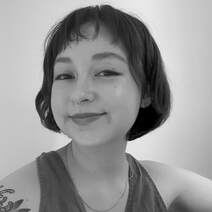 Krysta Lee Frost is a mixed race Filipino American poet who halves her life between the Philippines and the United States. Her work has appeared or is forthcoming in The Margins, Entropy, Berkeley Poetry Review, wildness, and elsewhere. She is currently pursuing an MA in Creative Writing at the University of the Philippines Diliman. Marketa CC Let Today Not Be The Day I submit, surrender to susurrus, call the neighbor’s bluff. Cave the image that appears for the image that transforms, transfixes. Give in, my whims a whirlwind, pill box untouched. Call out: love is a far cry from home. Hone my skills for leaving what’s undone, hatch another plan of escape, makeshift cities my tongue recites rote. Dream of death and knock on wood, blame superstitions, gawk at the email that arrives. Drive deep into the wound, ponder pock marks and stretch scar tissue as far as it can go. Let the pot boil over or the oil jump from the pan. Lie. Announce defeat on my hands and knees. Blame my mind, blame anyone. Profess obsession with undulation, unruly thoughts, ugliness. Proclaim inevitability, that I am what wrecks, what leaves the room a mess. Honor broken glasses and pulled-out drawers, the rehomed shirt that stays, shifts memory. Revere the loss. Grow bigger than I’ve allowed. Grieve what’s to come, what I can make happen. Heave and split. Think of how many men, how few. Think of no one. Let loneliness misshape, let it talk. Hollow out, hand to stomach, hastening. 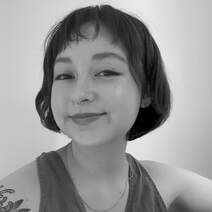 Krysta Lee Frost is a mixed race Filipino American poet who halves her life between the Philippines and the United States. Her work has appeared or is forthcoming in The Margins, Entropy, Berkeley Poetry Review, wildness, and elsewhere. She is currently pursuing an MA in Creative Writing at the University of the Philippines Diliman. Khánh Hmoong CC While I’m In The Body That I Am let me stay. Let the skin I spoil pool color, recover its vacancies. Let me peel at my want petal by petal and never get ahead. Deny the stray glance that lands on my desperation. Deny the birds. Even the ones whose hunt for warmth harmonizes with mine. Shun the shy plants at the side of the road. In another country, forget a foreign tongue. Replace what’s mine with what meanders for purer blood. What motley I posses, clot. Cells in denial against spilling. Let the hands rest. In the mirror, haunt another hour. Hollow out the harrowing gaze until the eye is all that remains. Do not attribute it to mother or father, drown it in garish hues. Dress for the woman I want to be, get to know her momentous in red. Reduce limb to limb. How I move across wretchedness or learn to carry my weight. Accept the cost it takes to stay upright, mouth above water. Name what loneliness carves its own cave. Call it red. Wear the dress. Sometimes, believe I can be saved. Take my hand to the cavity and convince it is someone else’s collapse. Learn to laugh at a joke about longing, the houses I can no longer visit, all my mother’s work misplaced. Even the photographs muffled in a box. The trees gone. The girl I left in each of them a murdered murmur of continuity. Forget how long it takes to renew all my cells. The seven years I’ve lost to being someone who shakes the shock out of morning. The shapes I’ve failed to suture, those nameless things, waiting to be claimed. 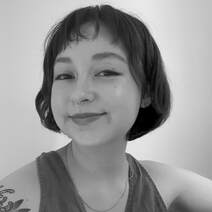 Krysta Lee Frost is a mixed race Filipino American poet who halves her life between the Philippines and the United States. Her work has appeared or is forthcoming in The Margins, Entropy, Berkeley Poetry Review, wildness, and elsewhere. She is currently pursuing an MA in Creative Writing at the University of the Philippines Diliman. 8/8/2020 Poetry by Nora Pace Marketa CC Covers I would like to be covered in lilacs no inch of me bare of blooms, or draped in starlight so bright it shines through the web of my fingers and toes. and I would toss my hair further if I could make it a river to nourish farms and sate forest fires. I’d wrap it around you douse you in love salve your drought rescue your crops. and when I’d finished throwing it about, I’d lay myself down with a hill for a pillow and stay very still and hope that deer would come to drink and that they’d be startled by a turtle or two popping their heads up happily from where they have been snuggling under the covers of the river I made. I realize you’ve never told me if your brother is still alive it was a hazy night but your eyes favor twilight you rolled down your window, let those old tires crunch and come to a stop on slow gravel. you took my hand and pointed with the other to a buck, high on the ridge. I could have sworn I heard you speak then again maybe you spoke the silence same as you held that deer’s eyes tethered to us for long wideness the sky color deepened my heart changed patterns to beat in threes and you did not drive again until he kicked up his hooves into the stars that had fallen to magnetize him into flight. note to a lonely man you are the rafters of an old barn and that owl perching there is hope, or your soul, and it might sound hollow when that grumpy little jester hoots, but it won’t go unheard in the barn itself. It doesn’t matter how few people open those doors, because your purpose is not people: it’s owls. And like once your stalls had horses and a cow called Moonlight, maybe they’ll be filled again or maybe you’ll use the space to build a boat. Anyway I’ll be here when you need me; I’m just chasing snakes right now but I can be a weathervane or a trough or I guess I can be a woman. 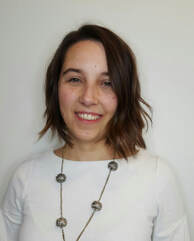 Nora Pace writes poetry, essays, and fiction. Her work has been published or is forthcoming in The Maynard, Peculiar Journal, Juniper, Kansas City Voices, Barren Magazine, and Riggwelter Press. She recently attended the Kettle Pond Writers’ Conference and was a finalist for The Public’s Radio Poetry Competition. She lives in Providence, Rhode Island, where she teaches English. 8/8/2020 Poetry by Erin Mizrahi Andrea Addante CC
Planting language in the sand I am dreaming about sleep but not sleeping in seach of pistachio lokum I settle into stonefruits I want to show you poetry is the only way out I mean something else entirely I am staying in the Jewish quarter of the old city eating olives with my lover we share a courtyard with a tourist who is telling everyone he is writing a novel I am telling everyone this place is trying to kill us I am writing a book about silence I’ve told no one I need to write but the novelist has spread his novelist things across our only table I am in search of a café and an old man tells me he knows one as I turn the corner to follow the old man slides his old hands up my shirt and all I am thinking is this land how it takes I am searching for a reason in the ancient stone brick by brick I am fantasizing that I have removed it all the Jerusalem Stone while the city was sleeping and I have buried it deep in the desert where the land splits open like a confession but what if I replaced it all with another stone would that new stone become Jerusalem Stone but the heart of a city should not be a stone I am searching for shelter from the relentless sun and I am thinking about trauma I mean, aren’t you? I mean is anyone sleeping? I am thinking about my family how we’ve carried a dead language across oceans because where could we safely put it down Quien no sabe de mar, no sabe de mal I am writing the archaeology of silence my lover calls it alchemy to take a disappeared thing and love it like you can see it and I think we could The Apartment My tiny New York apartment is getting tinier. Incrementally. You probably wouldn’t even notice it, but it startles me. I am suddenly much closer to things that were always close but not like this. Today it seems as though my body were touching everything all at once. I ask the apartment if it is shrinking. It says it is not. I ask it if it would like a glass of water. No, it would not. I search online to see if anyone else has experienced the sensation of their own home constricting around them but all I find are articles about anxiety and living in crowded cities. That’s not it though. I buy a large area rug on Wayfair. It’s beautiful and brightly colored in mostly warm tones. I find this soothing. The pattern appears Turkish and reminds me of me my grandparents. This too, soothes me. I measured it so that it fits the entire floor of the studio perfectly, its edges gently pressing the base of the wall. It feels scientific. I have never done anything that feels scientific. I climb into bed which is really a cloud and am swallowed into sleep. I wake to find the edges of the rug curled over me. I like how warm I am between the rug and the cloud. I knew you were miniaturizing I tell the apartment. It replies, But don’t you like how warm you are between the rug and the cloud? I nod but insist it is not sustainable. At this, the studio constricts again. My cloud is now a single pillow and the rug is impossibly thick wallpaper. My plants have all fled in the way that birds and animals migrate when there is danger. I want to flee but I also want to see just how far this will go. I want to name this beast. It tries to reason with me. This catches me off guard and my response is to bare my teeth. It sighs. I hiss. It pulls me closer and asks if it is true that all living things grow. I say it is true, but what– It asks if I am growing. I believe that I am, perhaps not physically anymore but emotionally, I think. It tells me it too has the right to grow, does it not? After so many have settled and crowded into in its creaking body, doesn’t it too deserve the chance to be more? This seems absurdly reasonable in a way that makes me want to coo at it and feed it sliced bananas and peeled grapes. But why are you shrinking, I cry! Why aren’t you growing? I didn’t have the space to grow, so I grew the other way. It suddenly revealed hands that were rivers and these river hands gestured to show how it grew in instead of out. I nod. The ceiling is pressed up to my head. I feel it breathe. Its breath is sweet but sad. I didn’t know space could be sad. It tells me it is not. it tells me that it feels more at home in itself than ever before. I did not know that a home could not feel at home in itself. I wonder how I could feel at home in a home that did not feel at home in itself. It is ready to be alone. I nod. I gather my things which are now just a few almonds, a lone succulent, and detangler. I hold my shoes in my hand and slip out slowly, gently kissing the door behind me. Erin Mizrahi is an emerging poet, educator, co-founder and director of Cobra Milk, a monthly reading and music series featuring emerging and established voices. She is a member of Brooklyn Poets, Asylum Arts, and a 2019 Inquiry Fellow with the Institute for Jewish Creativity. Erin is also a former Shoah Foundation fellow with the Center for Advanced Genocide Research. As an academic and a poet, her writing has centered around trauma and the many manifestations and possibilities of trauma narratives. She is an adjunct at CUNY Hunter College where she teaches English. Erin has also taught at Brooklyn College, Fordham University, and the University of Southern California. 8/8/2020 Poetry by Sofija Podvisocka corrine klug CC how to be fleeting, and how to regret it i find that i tend to stay the way a moonflower blooms, never long; instead I often occupy the space between the dying throes of a dream and consciousness where I am confronted with the taste of chalk drawn on suburban asphalt that’s only otherwise tasted rubber tires and scraped knees and rainwater dripping from the tiled roof onto the windowsill, which looks out either onto a mirror or a house entirely like my own. The asphalt chalk travels from my teeth to my tongue to the back of my throat like the moonflower, nocturnal, and tickles my windpipe with its sister ash; I wake up coughing, usually in my bed and sometimes in another, or by the riverside at noon, or to the end credits in the movie theater across from the grocery store where I only ever buy overpriced pomegranate tea in glass bottles. When we leave the double feature we hop into the shopping carts to race each other across the parking lot until one of us inevitably hits a curb and falls face-first into the asphalt, and when my cheek scrapes against the rough surface I bite my lip, I taste copper, taste chalk, taste ash; the surface speaks with a hoarse voice reminiscent of my own, one that reminds me that I’m the childhood friend gone bad, that I distort the roads melting away with the heat-haze beneath the sun and that I myself stuck the moonflower down my itching throat. the slug have you ever been silent, asks the slug, emerging wide eyed from the silk scarf hanging by the entrance of the thrift store. Carroll-esque, it holds a pipe beneath the no smoking sign and leaves a trail of slime as if it were Hansel leaving breadcrumbs, black enzymes writing extra zeroes into the price tag to make sure the number remains too high for its home to so abruptly be displaced. I run my fingers along the textile only to mistake it for a cocoon from which the butterfly emerges, Monarch; they whisper in a chorus meant for the amphitheatre, have you ever merely been your present self? We raised a colony of them in elementary school, their heavy ermine coats wrapped around their wings pooling on the floor, around the hollow of a throat in which rests hidden a fly trapped in an amber pendant I once bought in the kitschy souvenir shop by the old town. When I reach out to stroke the pendants they crack along the leylines left by my fingertips the way the surface of the river breaks at first rain, or the way the red rash streaks across my palm after I reach out to grasp at a stalk of what I didn’t know was poison ivy. The fly cracks its knuckles as it tears away the amber sheets and laughs, voice hoarse from hibernation, have you noticed that you are always dreaming? and my cheeks burn for days like the streaks on my hands, red and warm in front of the bonfire they taught us how to start. When my hands heal I collect dried pine needles grateful that no rain had come before to break the surface of the river, because the wet never simply rests, it seeps into the flesh of the pine like the fungus in the fell logs scattered across the moonlit paths between the earthworms that screech in fear as i trip over the dried-out driftwood. They shine a small flashlight into my eyes to check my pupils, and by now I’m used to the bugs speaking; I’m more worried about my shoes, soaked through from the early morning rain than them asking me, have you ever encountered your own body? 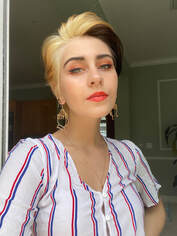 Sofija Podvisocka is a rising senior at Brown University studying Literary Arts. She works primarily with abstract writing and prose poetry, has work published in The Round, and currently manages Vagabond Magazine as editor-in-chief. 8/8/2020 Poetry by Lucy Hurst Tzef Pine CC
NOTES ON LOVE you don’t, you don’t know / i take a swig of sympathy in my morning coffee / i’m told i’m not alone / but you’re not in my body with me / my dr drops me a subtle line on f*cebook messenger / loving you feels like dying / i leave him on read so he doesn’t think i’m desperate / ‘there’s nothing left to be done,’ he tells me / ‘i know, it’s easy for me to say.’ / he takes my hand in his, turns my palm to the ceiling / & examines the sensitivity in each of my fingertips. i gutturally cry to a man i have just met. i’m so desperate for so many things / in someone else's room, prayer position on the bed / I’M SORRY / i can feel my blood in rivers / i throw my affection around, hoping it comes back like a boomerang / love me love me love me. NOTES ON HOPELESSNESS even talking about good things taints them / i want to help others & talk about it without sounding like a prick / trying to be kind is bloody hard / i want to have enough loose change / & my empathy to stretch out far enough that it becomes useful. i’ve been holding out for a divine intervention / an economy crash / a laptop background sunset / someone’s book to drop / but rebuilding faith requires a level of patience that i just don’t have / i carry my hope in private / that if i can’t have this world, someone else can / it’s easy to want to sink this island into the ocean / maybe we should, now i think about it. NOTES AT SEA i walk with no real intent or direction / using a stick to etch swirls around my feet / i wonder what the sea is thinking / if it thinks at all / HELLO, i write, WILL YOU SPEAK? / i look at the sea cannibalising on the horizon / & feel a sense of gravity again / i wish i could feel this way all the time / i’m scared about what sort of plastics are swirling around in there / & how much of it is my fault / each time i think about the planet i want to think about anything but / in times of crisis, i give plants to my friends for them to repot / i like to think that between us we could amalgamate enough plants that nature could reclaim itself / i’m pulling out fishing rope from the sand / i see my family jumping through estuaries / picking up pen lids and burst balloons / & the feeling of caring / feels like coming home. Lucy Hurst is a poet residing in Lincolnshire. She is currently studying for an MA in Creative Writing at YSJ, and specialises in queer and disabled poets. 8/8/2020 Poetry by Robert HamiltonHIC ET UBIQUE It was a life in a small space, a circle of dissected torsos and radium gum. Everyone feels compelled to persist in someone else’s poor decisions. Astatine chains are enough to hold us. Anyone can hurt; anyone can ball up in pain, but do any others wish more than we to slip the confines and hole up in some Idaho panhandle of the heart? Still the verdict holds. Public servals, sharp-eared, circle us, pawing the dust. On the shores of the stateless, cold waves like uniformed men break white on blue. Cimabue had it less wrong than we; life is flat, gold-rimmed, and elsewhere. DESERT MODERN Wind through Utah juniper ich-laut, ach-laut. A thumb prints cool ash on my forehead in a cold cedar box where rose buds dry. A line of cars winds around the basilica to order through an intercom the spongy, bone-dry, spider-light body of Christ with a cup of red wine. In the nave, empty chalices, dry throats. They kept you hidden behind a square of Neutra glass; nevertheless, a cholla thorn pricked blood from your lip and wrote on the vellum of your thigh: The wind is a throat you are its syllable. 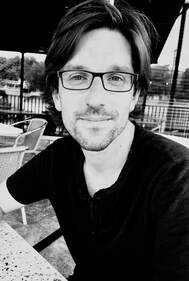 Robert Hamilton is a poet and professor living in Texas. His poem "Senso Unico," which appears in Posit, was nominated for a Pushcart Prize in 2019. Other recent work is in Pøst- and 8 Poems. His chapbook, Heart Trouble, was published by Ghost City in 2018. |
AuthorWrite something about yourself. No need to be fancy, just an overview. Archives
April 2024
Categories |
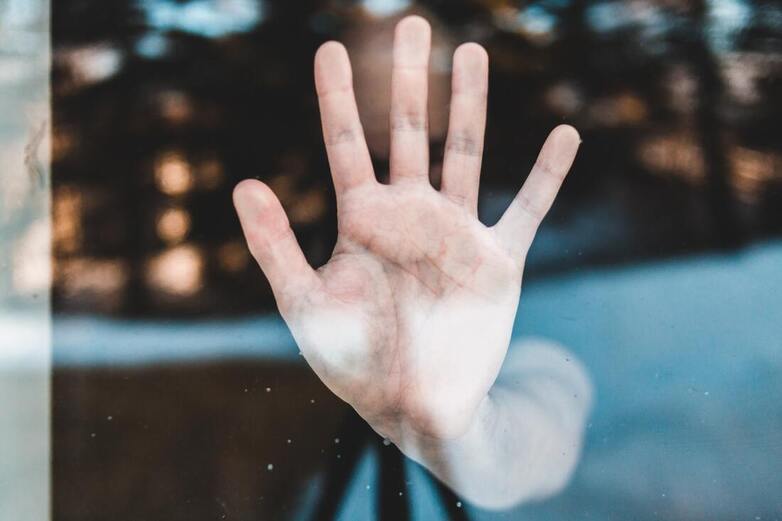
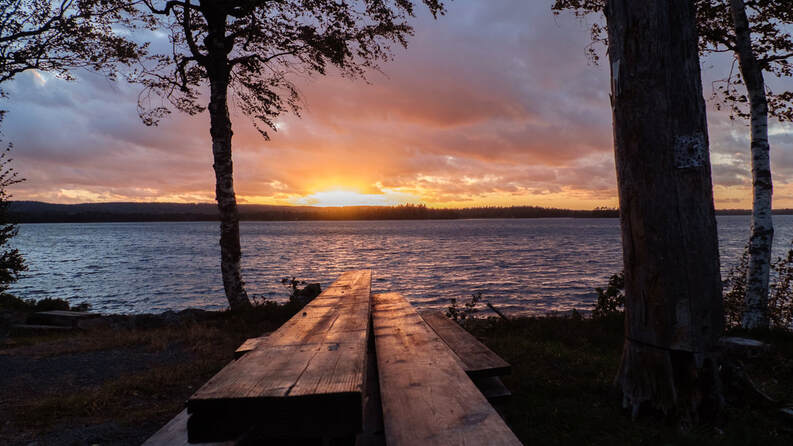
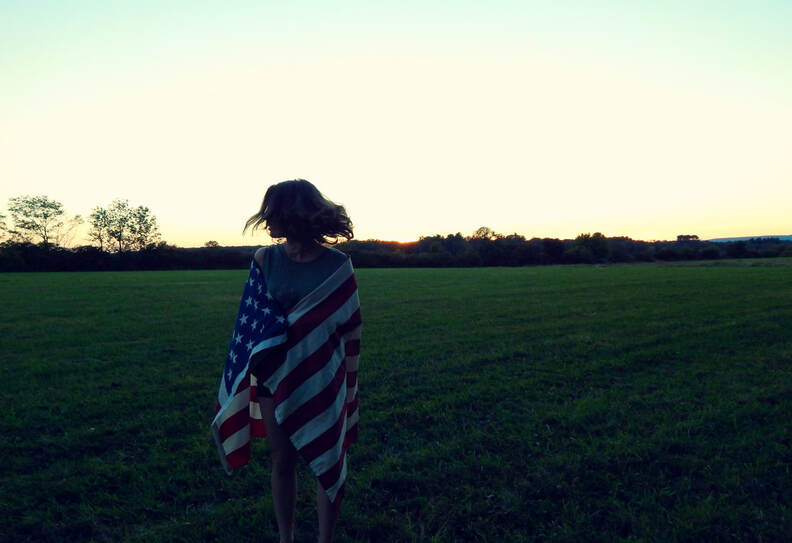
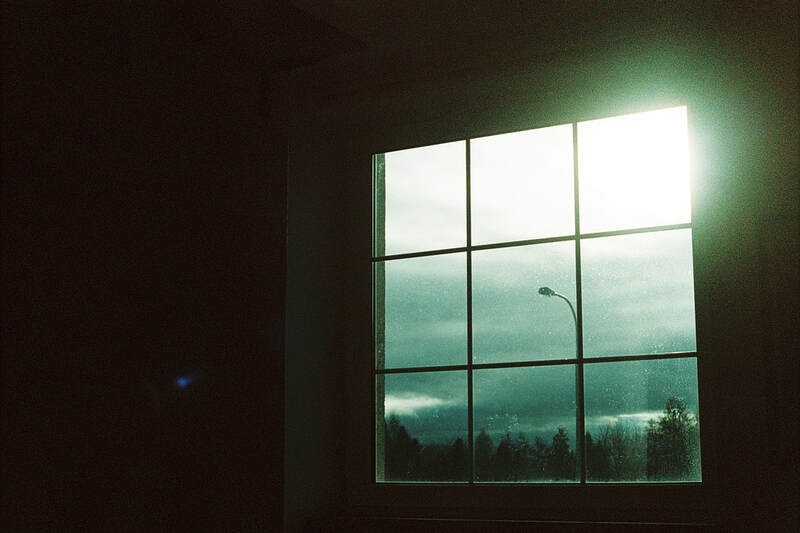
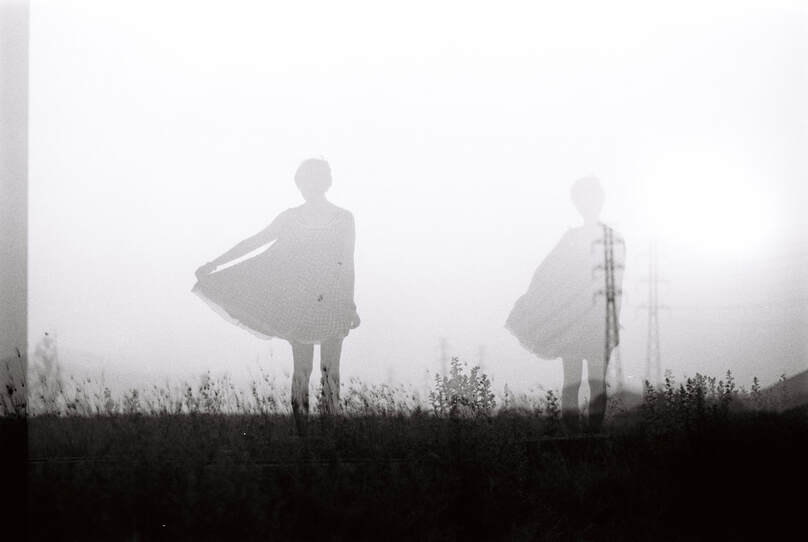
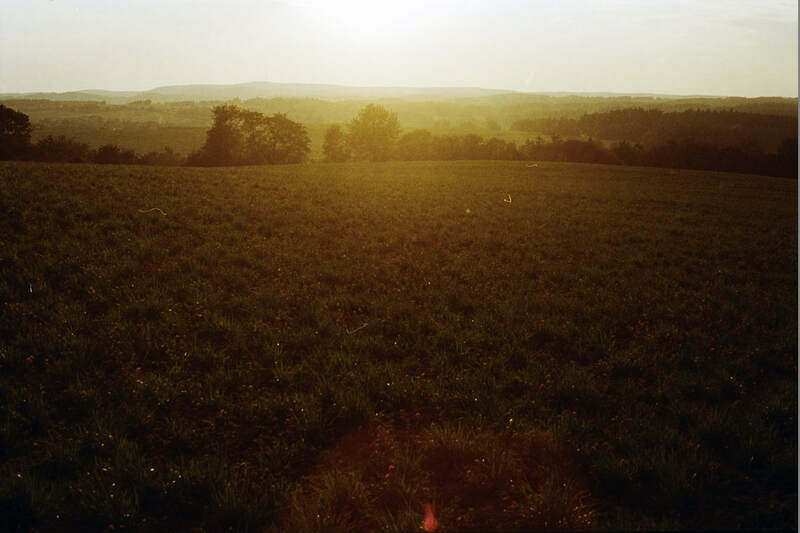
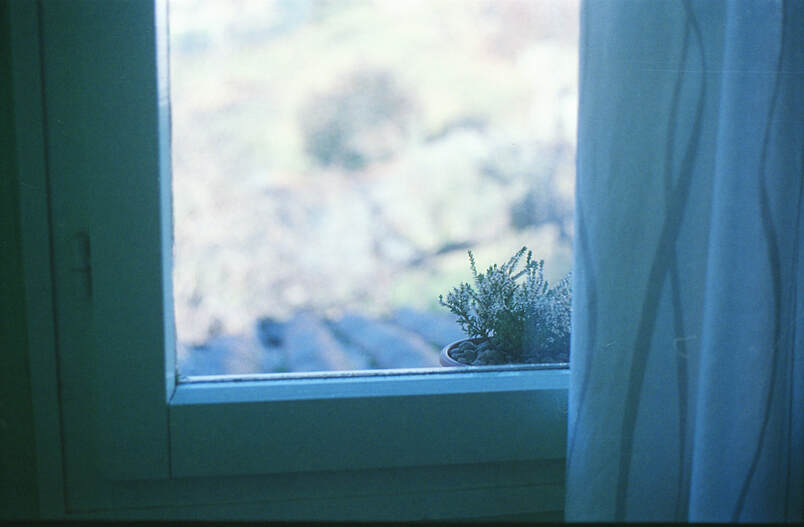
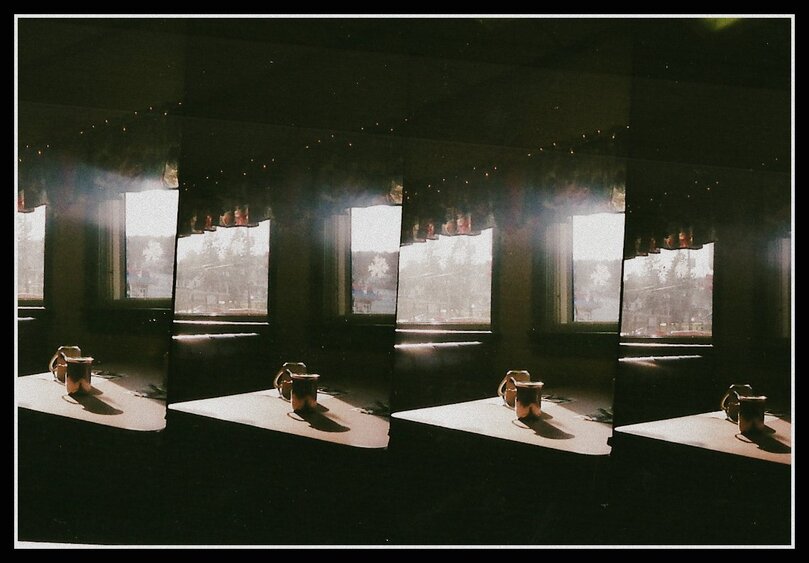
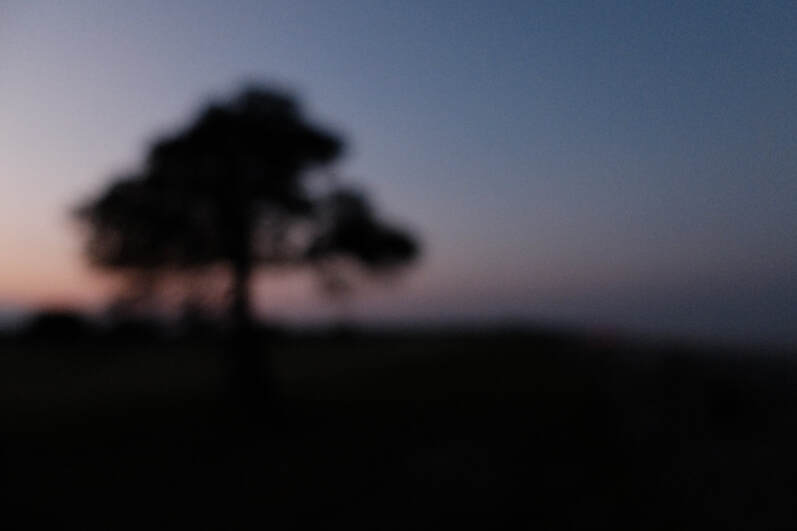
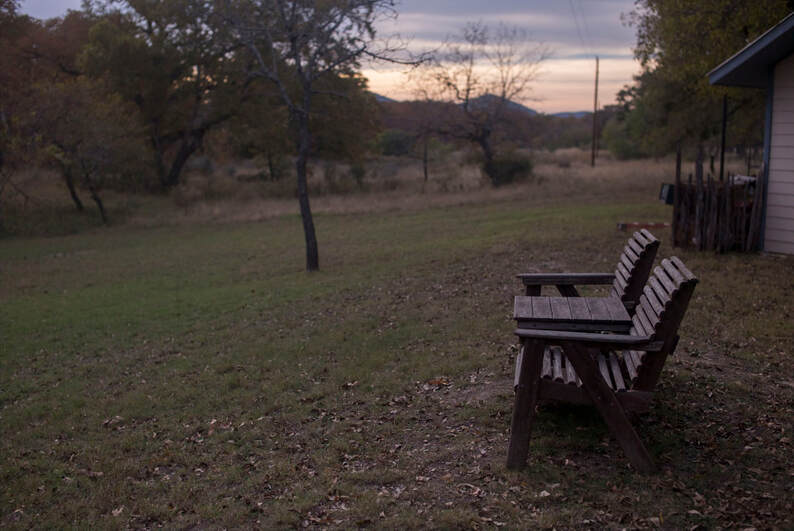
 RSS Feed
RSS Feed
